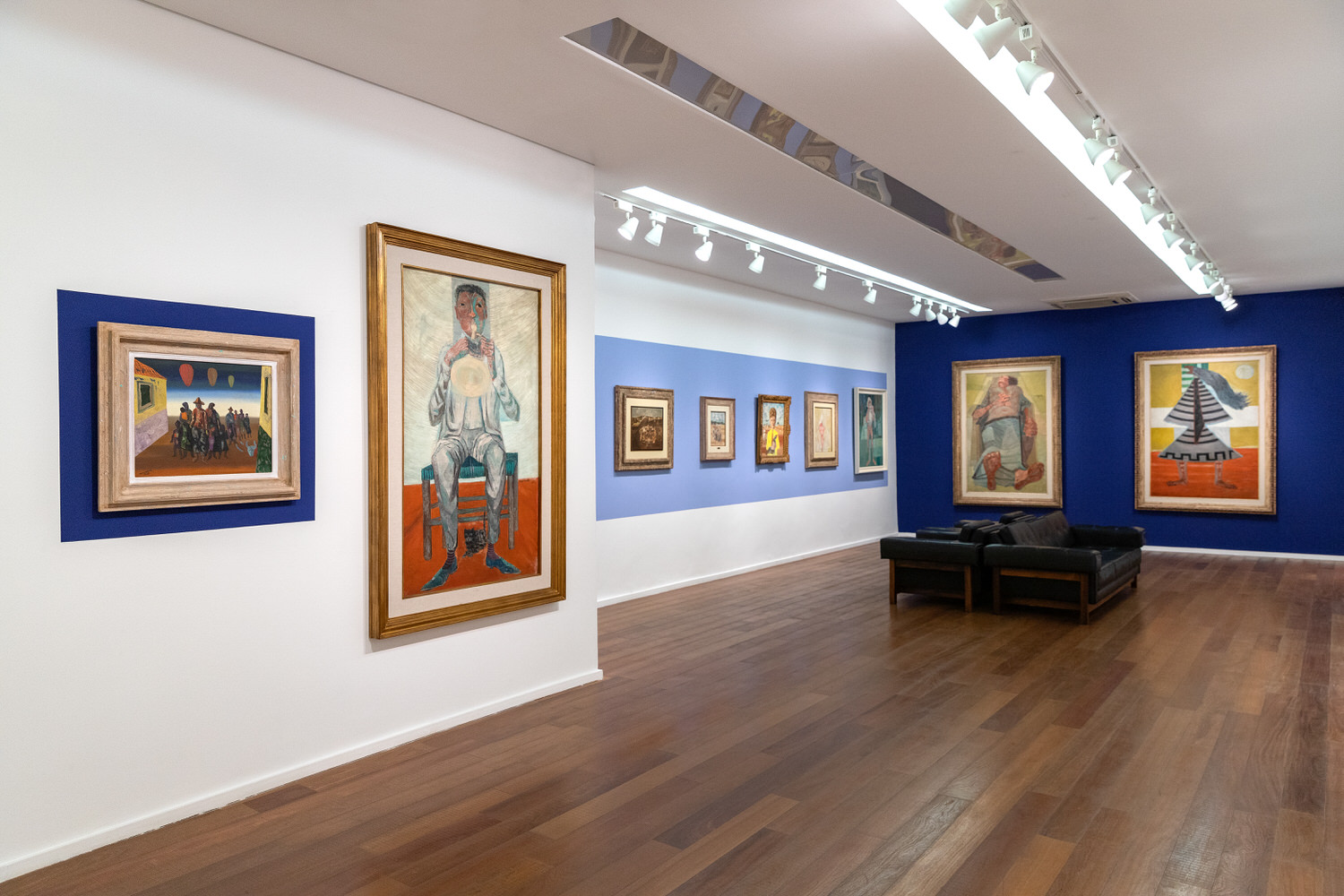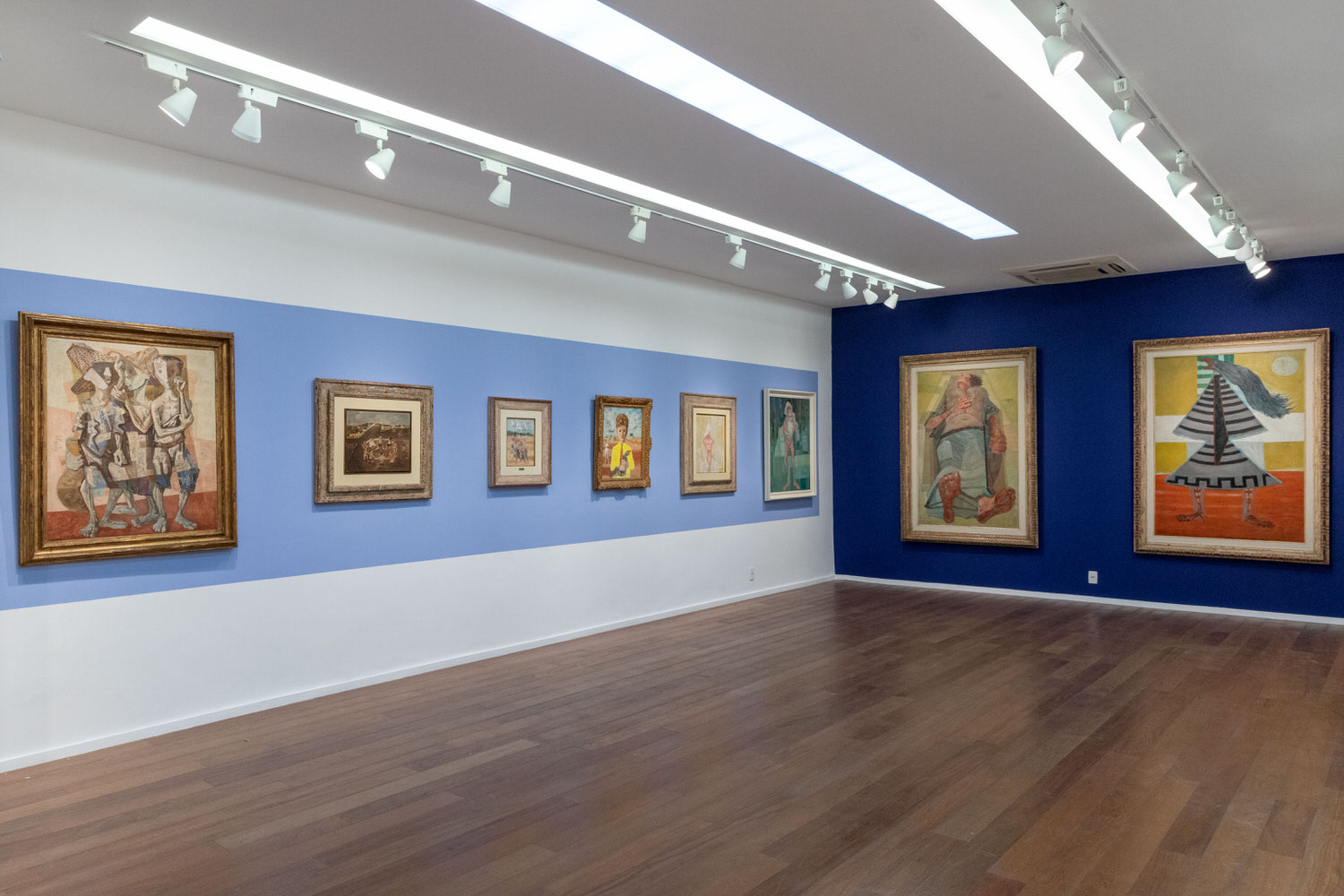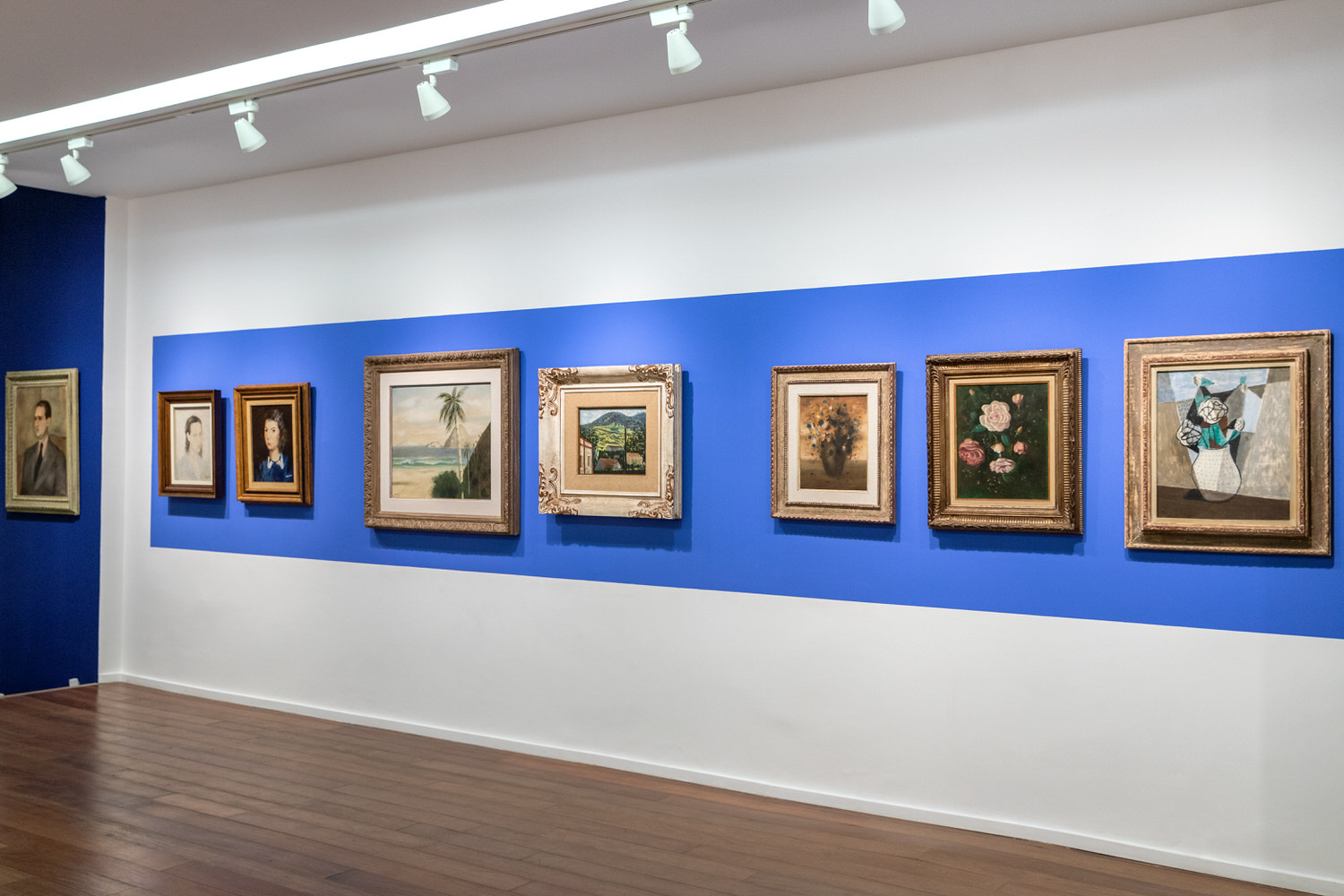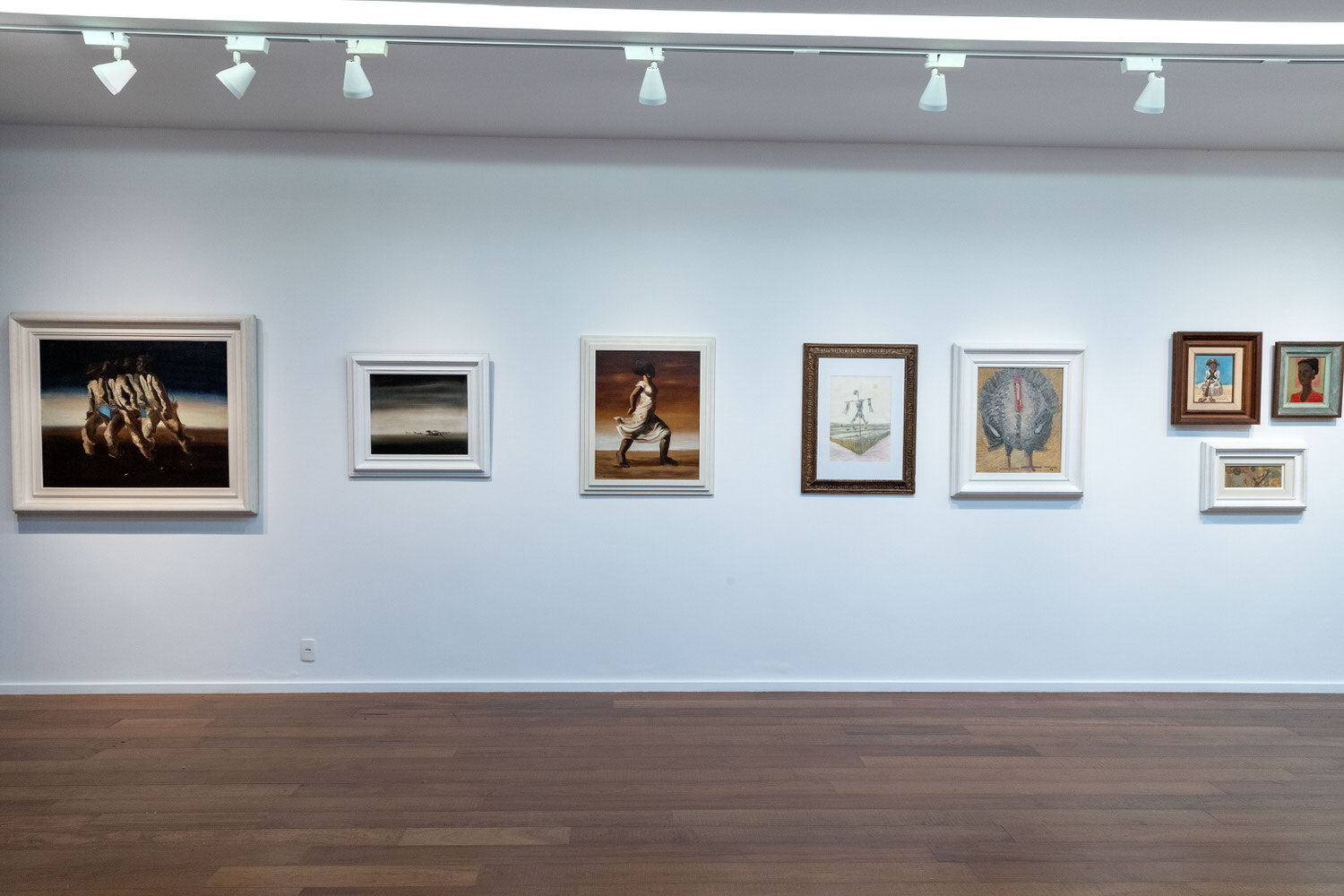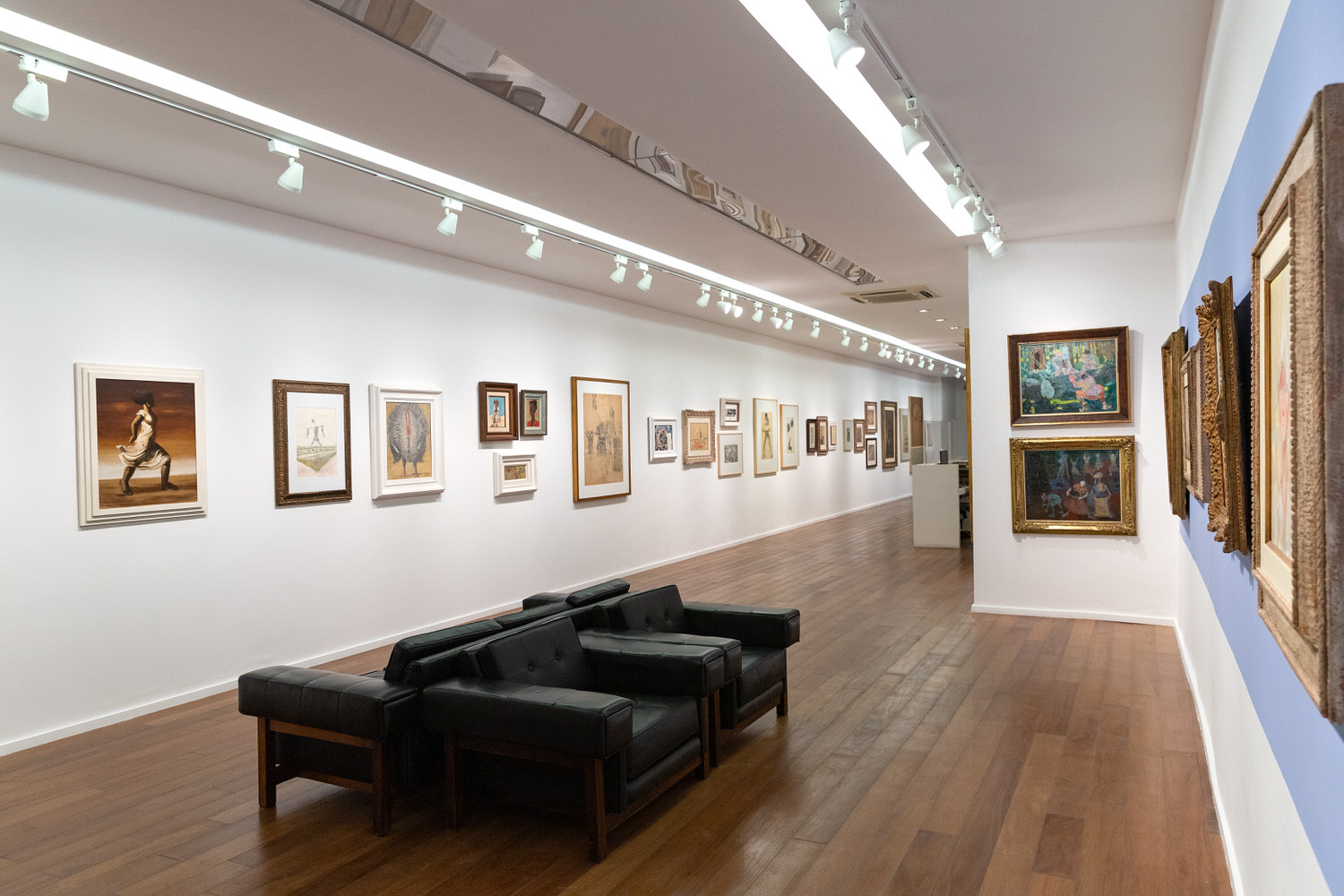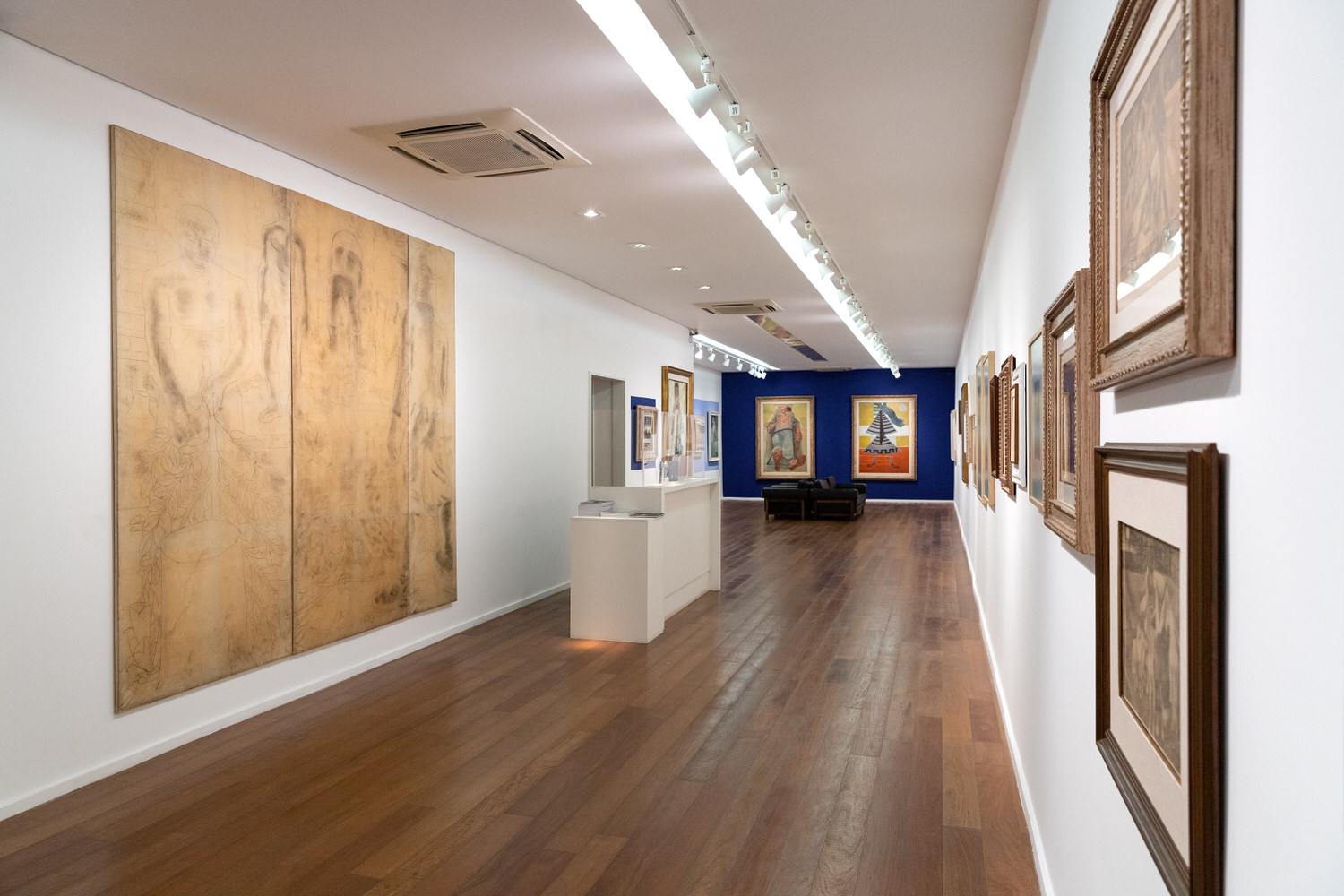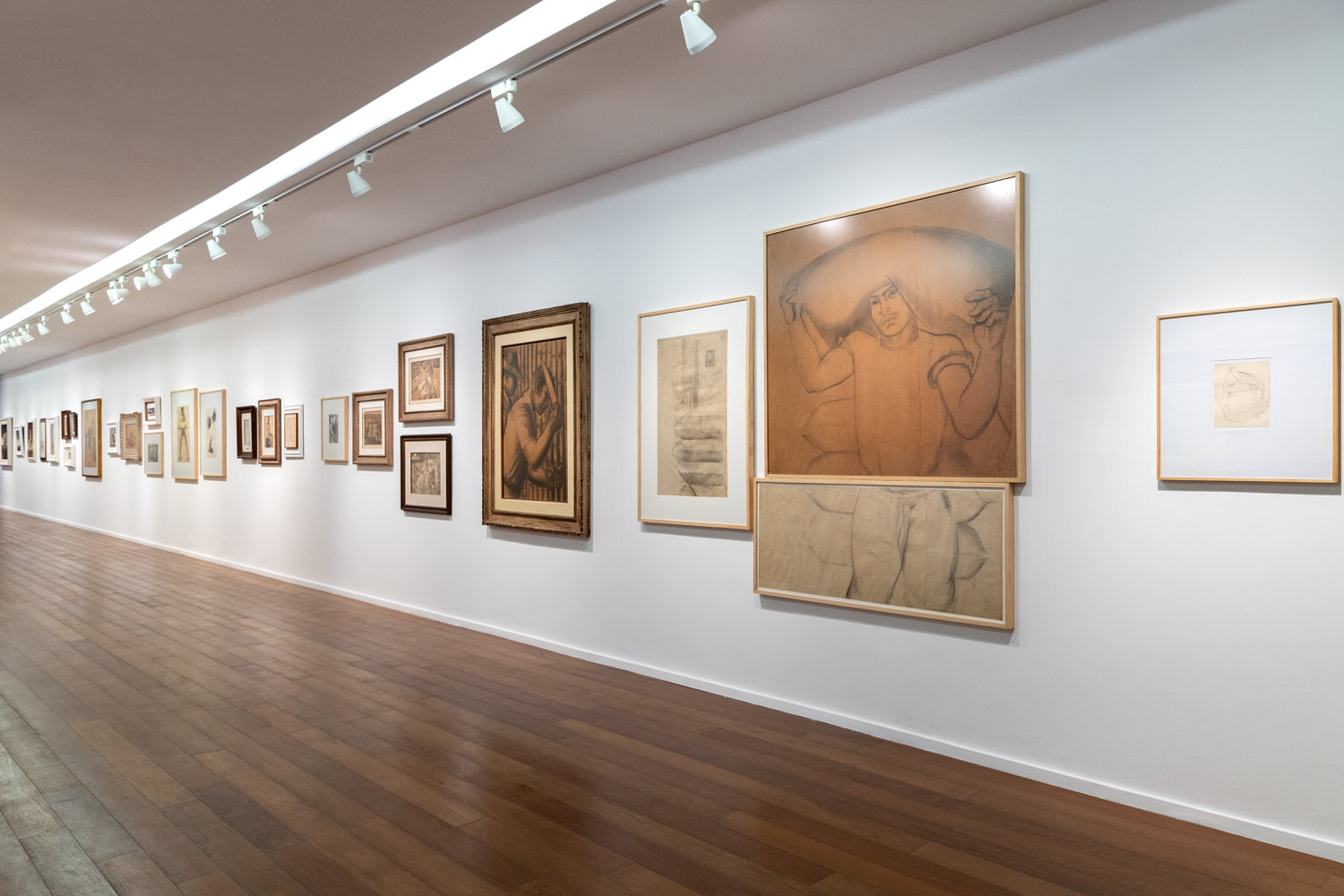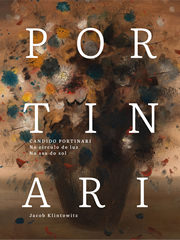Candido Portinari
In the Circle of Light - On the Wing of the Sun
CANDIDO PORTINARI
Memorial fragments of foreboding beauty. It's surprising how the artist, who created so many extraordinary murals—works that required study, planning, leisure, assistants, and spacious studios—has such affection for the everyday world that surrounds him or saw him grow up in. Animals, landscapes, relatives, household objects, children from his childhood, scarecrows, funerals, children's games. And always, in each of these encounters or memories, Portinari seems to perceive the being hidden beneath the vulgar surface, something that dignifies it and makes it unique. Not the appearance, but the soul that hides beneath or beyond superficial banality. This description is that of art, not that of a supposed realism, of conventional understanding. Memorial fragments of foreboding beauty.
Candido Portinari is a paradigm. He brings us the dream of what our country can become. He is an artist immersed in our humanity, in the Brazilian essence, and, at the same time, he is a psychic monument, a landmark of our consciousness, a self-sacrificing being, a slave to his talent, a miracle worker who constructed a language that seems impossible to be created by a physically fragile being, a premature death. He tells us, his work teaches us, that anything is possible, as long as you have a direction and renounce frivolity. By giving himself, by placing himself at the disposal of his talent, Portinari does not empty himself, but becomes a child of adventure, a man and his journey and his dialogue with history.
“...It was in you that we achieved our most universal expression, and not only through resonance, but through the very nature of your creative genius, which, even if it remained ignored or denied, would save us for the future...”
Letter from Carlos Drummond de Andrade to Portinari, 1946.
I consider you the affirmative landmark of our modernism, one of the greatest Brazilian artists of all time, a national artistic symbol, author of a monumental work with few global equivalents, and, in our country, the author of an odyssey about our life and our people. Furthermore, Portinari's aesthetic quality, the grandeur of his themes, his bold interpretation, and his courage in choosing subjects, despite infinite difficulties, characterize him as one of the great artists of the twentieth century. Portinari is the teller of myths, our Homer. And in his work we find the stillness of tragedy, the paradigmatic time of the symbol, and the absence of the agitation of simple drama. Portinari is the fabric that organizes and forms the basis of Brazilian art, the mark of our maturity, the alpha point from which we can contemplate our panorama.
Candido Portinari
In the circle of light
On the wing of the sun
This title, with a slight modification, was taken from the poem that Portinari dated November 1, 1961, shortly before his death three months later, on February 6, 1962. This poem is extraordinary, perhaps the best Portinari wrote, and in my opinion, it is certainly the most revealing. Portinari recounts his frustration at not being able to see Grünewald's "Christ" in Colmar, France. The museum was closing, and he contemplated Christ through a half-open door. He speaks of his love for the artist, describing that he was dying and that this would, therefore, be a farewell. And in recounting his contemplation, his dialogue with the artist and the work he interviewed, he describes his own perception, his indomitable spirit in the face of difficulties. In bidding farewell to the symbolic work, he, in fact, reveals his way of understanding the world. He tells us, without making this explicit claim, how the artist Portinari relates to the world: to being and the light of the world. And he tells us that from a hole of light he observes the artist's magnum opus and how he sees it, on a wing of the sun, how it perceives its luminosity. This title is a portrait of the secret Portinari.
Candido Portinari was born on December 29, 1903. 120 years ago, it seems like a special date. And this exhibition is motivated by this moment. When we contemplate the trajectory of his work—because that is what it is now about—we marvel at how it has been accepted, denied, and recognized, and how, each time, its aesthetic and historical importance grows, offering itself to us as an example of an era and its future. This exhibition is an opportunity to reflect once again on Candido Portinari, on the greatness of art, and on its capacity to make us more human, to shape our psyche. And to reflect on the mystery of culture and its capacity to confront us with the pleasure of form, to imbue us with the sublimity of concept, to elevate us and broaden our imagination.
Jacob Klintowitz
Curator
